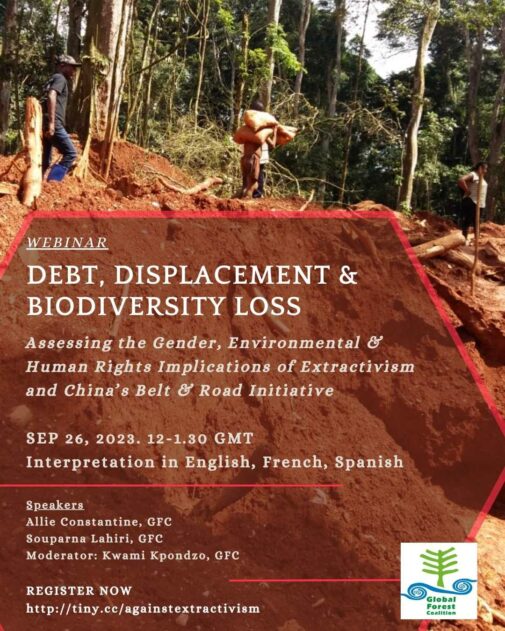Webinar: Debt, Displacement, and Biodiversity Loss: Assessing the Gender, Environmental, and Human Rights Implications of Extractivism and China’s Belt and Road Initiative
China-backed, large-scale infrastructure projects are causing widespread ecological damage, including deforestation, habitat destruction, water pollution, and increased carbon emissions globally. Join us for a special webinar where Allie Constantine, the author of GFC’s latest report, Debt, Displacement, and Biodiversity Loss: Assessing the Gender, Environmental, and Human Rights Implications of China’s Belt and Road Initiative, will introduce the report and its findings and recommendations.
In the report, GFC uncovers the deeply troubling consequences of China-backed infrastructure projects in Kenya, Indonesia, and Argentina. With a focus on the diverse experiences of women, the report unveils the human rights violations and environmental devastation resulting from China’s ambitious Belt and Road Initiative (BRI).
Another form of extractivism that has dangerously hit the Global South and which has similar consequences to the BRI projects is the expansion of monoculture tree plantations. It involves land grabbing, displacement, exploitation of women, biodiversity loss and water pollution through the use of dangerous chemicals. GFC’s Senior Climate and Biodiversity Policy Advisor Souparna Lahiri will share his knowledge and ideas for overcoming this dangerous trend across Asia, Africa and Latin America before we open up for questions and answers and open discussion.
When: Tuesday 26 September, 12 pm UTC/GMT
Interpretation available in English, French, and Spanish
Register now to secure your place
Moderator: Kwami Kpondzo, GFC Extractive Industries, Tourism and Infrastructure
Campaign Coordinator
Speakers:
Allie Constantine, Report Author, “Debt, Displacement, and Biodiversity Loss”
Souparna Lahiri, GFC Senior Climate and Biodiversity Policy Advisor












